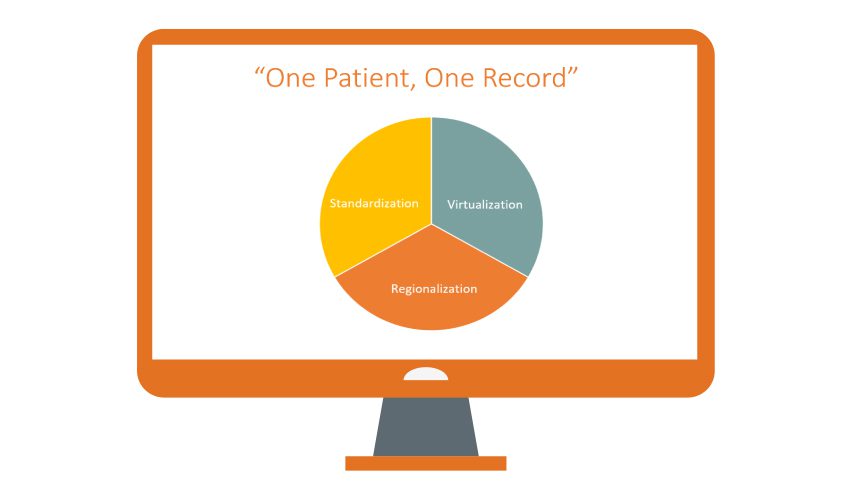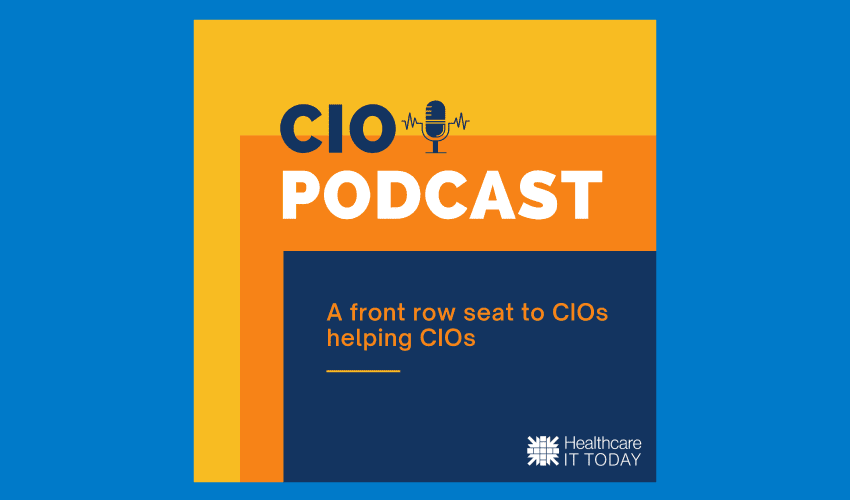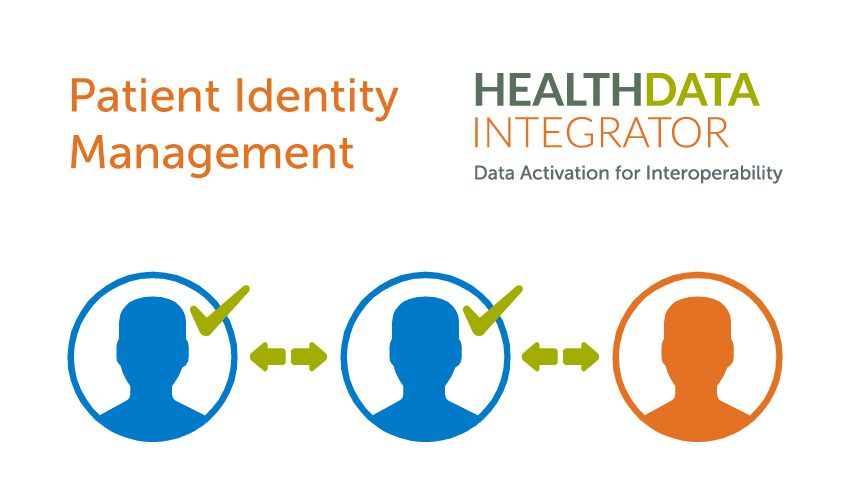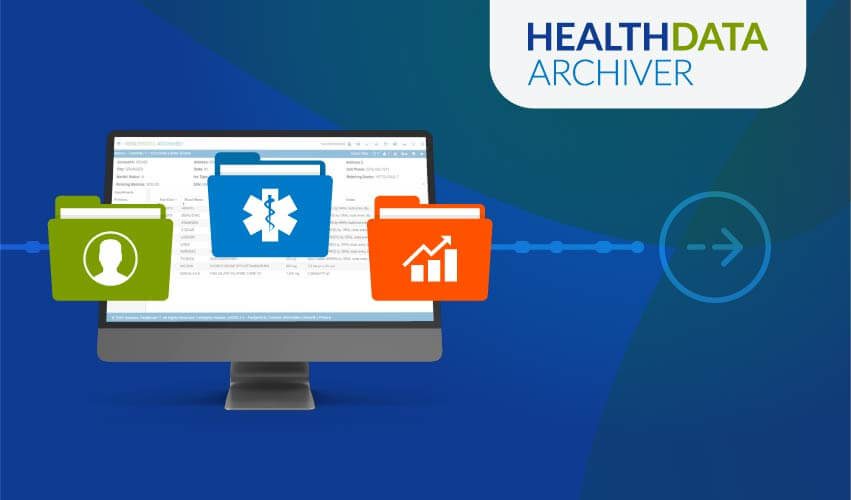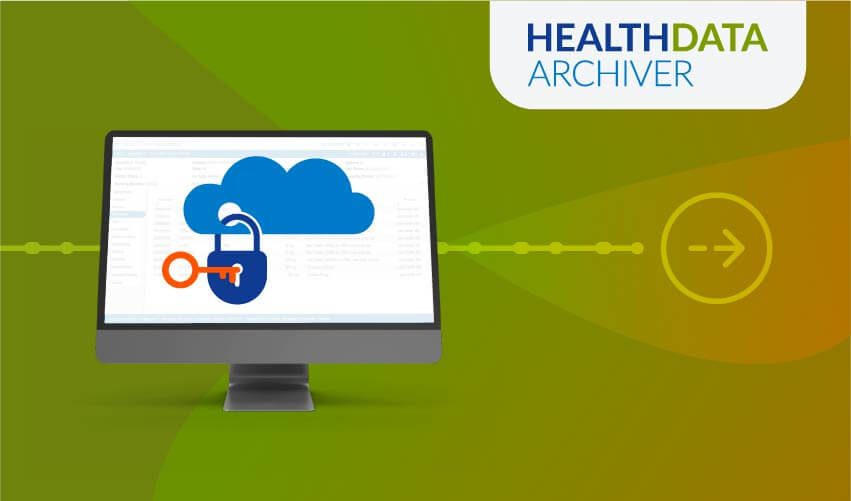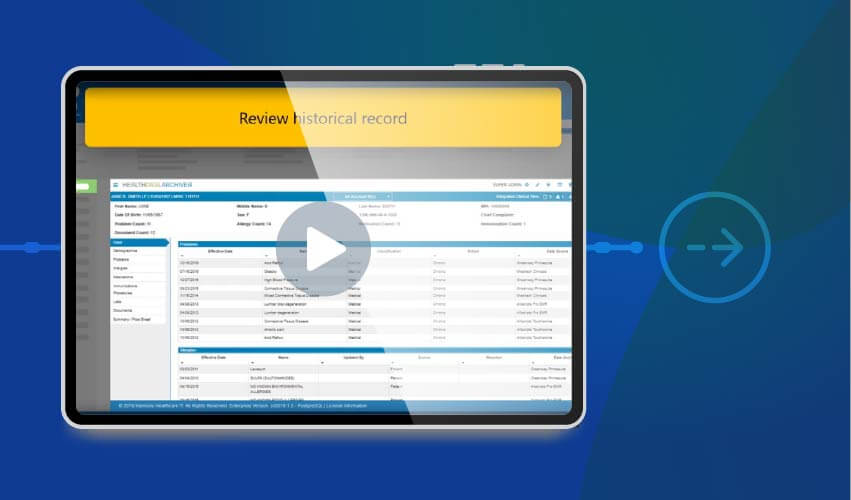Streamlining Lifecycle Data Management
Harmonize Your Healthcare Data for Epic.
Harmony Healthcare IT has deep experience working with Epic®, the leading EHR vendor in the U.S. Whether you are planning a move to Epic or have been using Epic for a while, we can help you extract, convert, archive and manage your data. Our solutions accurately move data, support interoperability, simplify user workflows, and integrate with Epic.
Why Choose Harmony Healthcare IT?
500+ Clients
Across the healthcare continuum trust our expertise in data management.
HITRUST Certified
Ensuring we meet the highest standards in data protection and security.
Epic Integrations
Single Sign-On and other integrations specific to Epic.
KLAS Rated
Consistently ranked highly in the data archiving category.
Efficient Processes. Rapid Timelines.
Develop a Strategy for Legacy Data
Implementing a robust plan for active and legacy data is best practice when migrating to a future-oriented EHR like Epic. Healthcare providers in merger and acquisition mode must rationalize technology to select a future-oriented EHR application.
- Take a System Inventory
Capture the details of the source systems you plan to retire. Our inventory tool logs legacy system details to help scope data extraction, migration, and retention. This includes identifying contract renewal dates, system static dates, and A/R wind-down plans to prioritize the order of system decommissioning. - Identify Active and Archive Data
Determine which data will be converted to the new EHR and which will be archived. Our experts can help guide your EHR change management planning and inform system decommissioning and data archive initiatives.
Typically, we convert one to two years of clinical data to the selected EHR. The rest of the clinical data—along with historical enterprise resource planning (ERP), revenue cycle, and other system data—is extracted and consolidated into our active archive, HealthData Archiver®. The archived data is available to clinicians at time of care through secure Single Sign-On capabilities.
Leverage Our Experience With Epic to Optimize Your Data
- Our team includes Epic analysts holding Bridges, Data Courier, Caboodle, etc. certifications who ensure that data is structured, validated, and delivered in accordance with Epic’s interface specifications and operational workflows.
- EHR data conversion services are specialized and critical. Our team and processes are intimately familiar with Epic’s implementation plans, timelines, import specifications, and testing approach:
- Small-scale testing
- Large-scale testing
- Full-scale testing
- Production data load
- Pre go-live data load
- Post go-live data load
- We generate custom validation scripts and structured testing plans aligned with small-scale, large-scale, and full-scale testing milestones. These tools streamline stakeholder engagement and ensure that validation efforts are both targeted and traceable.
- HealthData Archiver® consolidates the unconverted legacy data so legacy systems can be decommissioned. This archive maximizes user access from Epic via Single Sign-On, Secure Record Delivery, and Legacy Record Indicator integrations.
- We are proficient at assisting smaller organizations moving to Epic’s Community Connect or Garden Plot. We’ll migrate selected data into Epic and archive the rest so users can access historical records as part of a secure and cost-effective solution.
Executing Your Epic Data Management
Learn more about HealthData Platform™, our enterprise-wide solution that enables secure extraction, migration, archiving, integration, and access to patient, employee, and business records—all leveraging a scalable, compliant infrastructure.
Available in Connection Hub on Epic Showroom
HealthData Archiver® enables SSO access from Epic with a visual Legacy Record Indicator, while Secure Record Delivery sends archived records to patients via MyChart.
Why Archive Data?
Consolidation
By merging numerous legacy data silos into one secure archive, HealthData Archiver® enables accessible, long-term storage via Single Sign-On and other Epic integrations.
Reduced Costs
Keeping legacy systems running gets expensive in a hurry with maintenance, licensing, backup, and other costs. Older systems are also vulnerable to security breaches.
Compliance
HealthData Archiver® complies with record retention mandates and supports interoperability requirements of the 21st Century Cures Act.
Better Backup
A backup copy of your data may be secure, but it lacks the necessary searchability and user workflows of an active archive like HealthData Archiver®.
Streamline Registry Submissions from Epic
Registry participation is necessary—but the manual abstraction process is a time drain. ClearWay, Harmony Healthcare IT’s AI-powered registry abstraction solution, integrates with Epic to automate this process by up to 80%, helping your clinical teams focus on care, not clerical work.
Built with Natural Language Processing (NLP), ClearWay abstracts and structures key registry data directly from Epic, ensuring accuracy, speed, and compliance. Compared to competitors’ 20–30% automation rates, ClearWay delivers nearly 100% abstraction automation while meeting requirements.
FAQ
Does Epic have APIs?
Yes, Epic has hundreds of application programming interfaces (APIs) that utilize USCDI v1 FHIR (a common language organizations use to better support data exchange) as well as other industry-standard APIs and Epic Public APIs. APIs allow information systems to communicate and transfer data back and forth between systems. This is a step forward for interoperability between healthcare providers, payers, patients, and other users for improved cooperative use of health data across the care continuum. API standards ensure data movement and integration are addressed. Harmony Healthcare IT leverages Epic APIs and other APIs to enable our integrations.
What types of patient health data can we migrate to or from Epic?
Harmony Healthcare IT has served many healthcare organizations—from single providers to large Integrated Delivery Networks (IDNs)—in their transition to Epic. Our solutions support these organizations in seamlessly managing their data and ensuring a smooth integration into their new, modernized systems.
As healthcare providers align their hospitals and clinics onto a single integrated platform to improve patient experience, streamline clinical workflows, and enhance data analytics, certain data must migrate to or from Epic, and the remaining legacy data must move to our active archive. Our team automates the migration of structured data from EHRs to and from Epic and can resolve data fidelity and interoperability issues for more complete, clean, and consumable clinical data.
How will we ensure compliance with healthcare data privacy regulations such as HIPAA?
Harmony Healthcare IT is part of an elite group of organizations worldwide with HITRUST-CSF(R) certification. We support data privacy compliance by migrating health and operational data to meet regulatory guidelines and record retention policies. HealthData Archiver® reinforces compliance with audit trails, break-the-glass and error correction/addenda features, as well as record find, search, and security capabilities. Our industry experience supports the highest level of compliance before, during, and after a migration.
Key Resources
Check out resources, including an Epic/Harmony Healthcare IT case study, our CIO podcast, and more.

